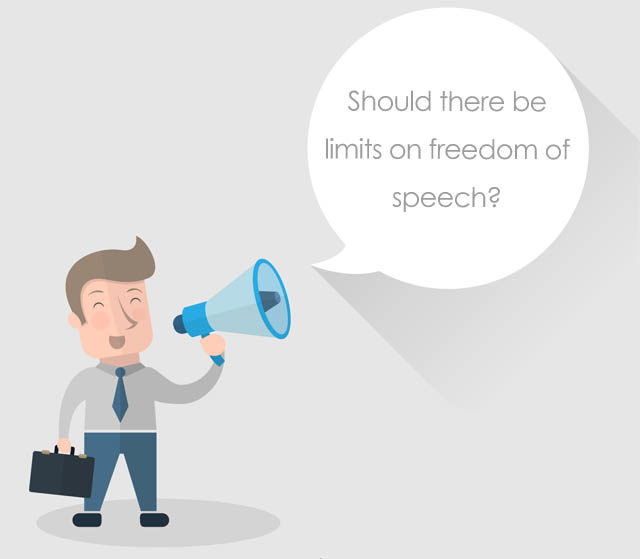A right is not absolute…for every right comes with a companionable duty. In fact, one simply needs a lesson in jurisprudence (the formal study, knowledge, or science of law) to understand that YOU can only exercise your right if it does not interfere with MY right. Or what is called ‘rights in rem’ in legal parlance. A right-in-rem is basically a right against the world at large.

If you are not a law student and are busy scratching your brain — relax! — for I will explain what I mean using a simple example. You have a constitutionally guaranteed right to freedom of speech, while I have a basic human right to live with dignity and respect. What a right-in-rem basically signifies is that my right to dignity is protected against the world at large. That is, no one in the world is allowed to infringe upon and take that right away from me. Thus, human rights supersede constitutional rights. Or mathematically speaking: my right (to live with dignity) > your right (to freely express yourself).
Even though freedom of speech is a fundamental tenet of democracy, it does not give you a “no-holds-barred” right to vilification. In fact, even the Indian Constitution, which grants the ‘freedom of speech’ under Article 19 (1) (a), does not dub it an absolute right. For freedom of speech (or written text, for that matter) must be judged from two points of view. The first being the ‘harm principle’ that was proposed by John Stuart Mill, the second is the ‘offence principle’ that was added by Joel Fienberg.
Or in other words, speech (or text) that harms and offends becomes liable to libel…and is covered under the law of torts. I know…I know…now you must be wondering what is tort? Don’t worry, I will explain it soon enough. For now…you just have to trust me that understanding these terms have become of utmost importance owing to the apparent lack of knowledge on freedom of speech and its legal liability, it becomes necessary to understand the laws that are designed to punish libel (written defamatory statements) and slander (spoken defamatory statements).
Etymologically speaking, the term ‘tort’ comes from the Latin term “tortum”, which stands for “wrong” or “injustice”. That is, tort basically means a wrong that has been committed against one person by another person. Thus, when you indulge in libel and/or slander, you become liable for legal action. In fact, you also need to be aware that in India — unlike its western counterparts — defamation is both a civil as well a criminal wrong.
Not just for legal reasons, truth is…as members of a community (’Man is a social animal’), we need to “use” speech to communicate with one another, not “misuse” speech to hurt and offend those around us. Even the Supreme Court in 2015 laid down the “contemporary community standard test” that was to be used as the yardstick to judge whenever freedom of speech overstepped its boundaries.
Thus, speech must always be preceded by thought…think before you speak!































